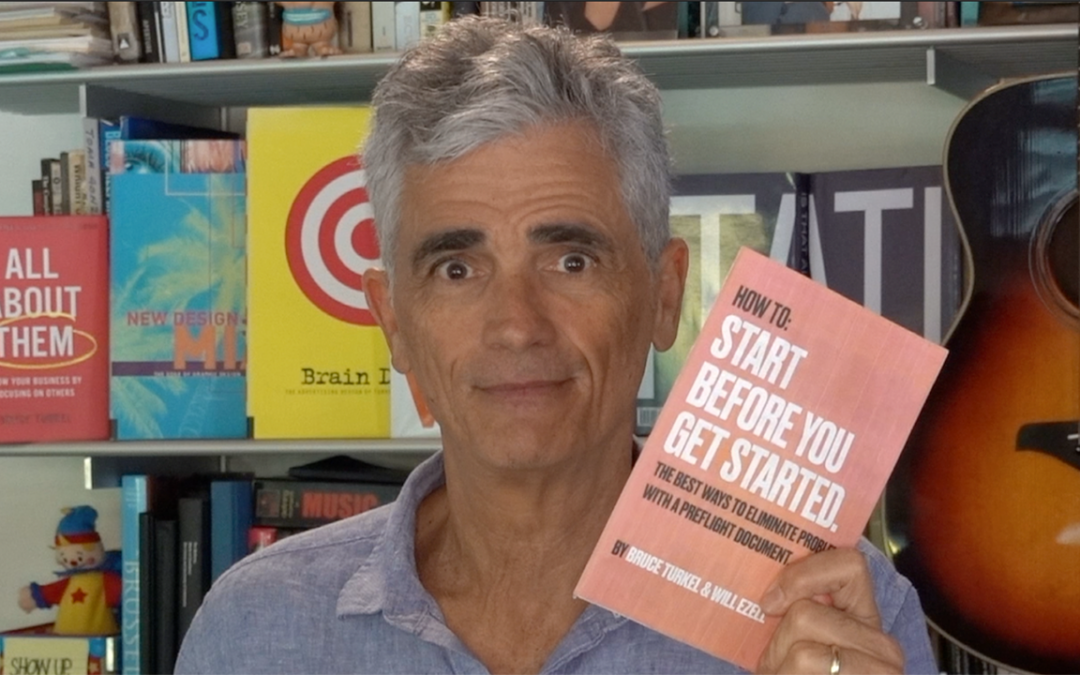Click HERE to watch the video
Writers Block.
Have you ever suffered from writers block?
It’s that awful feeling you get when you can’t seem to put two words together in a coherent sentence, even though you have a deadline to meet or something that needs to be written.
Having written this blog every single week since its birth in June 2007, I can sympathize. There are times when my ideas flow like poop from the proverbial goose, and other times when the more appropriate metaphor has something to do with squeezing blood from a stone.
The funny thing is you’ve never heard of anyone suffering from dentist’s block, gardener’s block, accountant’s block, or mechanic’s block. Being a “writer” is the only title I can think of that people naturally put the word “block” after.
Even more arty and creative activities don’t invite adding the word “block.” Have you ever heard of painter’s block, musician’s block, designer’s block, or chef’s block, for example?
Neither have I.
But writers block? I hear people complain about it all the time. There must be something about confronting an empty page or a blinking computer screen that causes people to freeze and go blank.
Knowing this, I’ve developed some tools and habits that help me overcome the inevitability of writers block. Maybe some of them can help you, too.
Overcoming Writers Block
Don’t wait until you need to write something to write something. Keep an idea of the different writing assignments and projects you have coming up, and pay attention to thoughts, ideas, and situations that might work for them. Then, have a good way of memorializing those ideas so you can find them when you need them. Keep a list in your phone’s notes, use Evernote, or carry a notebook. I even carry a short Sharpie to write ideas on my hand when I’m running in the morning. Where you put your ideas is less important than your ability to recall them when you’re ready. Know that ideas don’t necessarily show up when you need them, but they do show up. All you need to take advantage of that certainty is to be prepared.
When people ask me how to become a professional speaker, I always say, “If you want to speak more, speak more.” I’ve found that what’s true for keynoters is also true for writers. If you want to write more, write more. Writing uses muscles that need to be exercised to stay strong. But it’s also true that if you want to write more, you should read more. Observing how others turn phrases, answer questions, and lay out their arguments is always great fodder for doing it yourself.
Spend some time answering questions before you start writing anything. Knowing what I’m writing about and what I want my writing to accomplish always focuses my efforts and saves me the time I might otherwise spend meandering around and not getting to the point.
All you have to do is answer these five questions:
Who? Who am I trying to reach?
What? What do I want them to do?
Where? Where am I going to reach them?
When? When will I reach them? When will they respond?
Why? Why should they respond?
Just start writing. Nothing gets the juices flowing more than getting started. When I have nothing to write about, believe it or not, I write about having nothing to write about. And by doing that, I often start writing something valuable without even realizing it.
Remember that the craft of writing is not in the writing but in the rewriting. Your first draft doesn’t need to be perfect. Just get your ideas down as quickly as possible. After you memorialize your ideas, there will be plenty of time to refine what you’ve recorded. Or, as Hemingway is said to have quipped, “Write drunk. Edit sober.”
Overcoming Writers Block
To make these ideas as beneficial for you as possible, I’ve compiled them in a little e-book called How to Start Before You Get Started, The best ways to eliminate problems with a preflight document. To help you overcome writers block, the book includes 42 questions to answer before you write or create anything.
Click HERE for your free copy.

